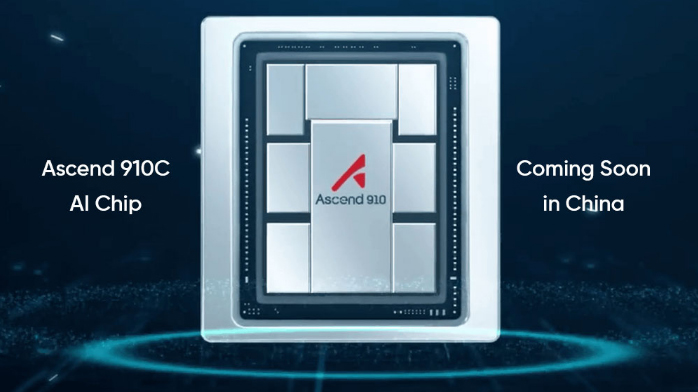|
Nvidia's H100s are the gold standard, but they're expensive and use a lot of juice. Think of them as the luxury sports cars of AI chips.
Huawei's Ascend 910Cs are like the underdog racers. They're just as fast, but they're more fuel-efficient and might be a bit cheaper.
So, why choose Huawei
Save some cash: If you're running a lot of AI models, those energy bills can add up. Huawei's chips might be a more budget-friendly option.
Go green: Less energy means a smaller carbon footprint. If sustainability is important to your lab, Huawei's chips could be a good fit.
Support the underdog: Let's face it, it's always fun to root for the underdog.

Key features and potential advantages of the Ascend 910C include:
High performance: The chip is designed to deliver exceptional performance for AI workloads.
Energy efficiency: It aims to be energy-efficient, reducing operational costs.
Scalability: The Ascend 910C can be scaled to meet the needs of large-scale AI applications.
Potential for lower costs: As a competitor to Nvidia, Huawei's chip could offer more competitive pricing.
Bottom line; While Nvidia has been the king of AI chips for a while, Huawei's Ascend 910Cs offer a compelling alternative. They might not be as well-known, but they could be a game-changer for labs looking to save money and reduce their environmental impact.
However, it's important to note that the full impact and capabilities of the Ascend 910C will only be apparent as it gains wider adoption and undergoes real-world testing. The competitive landscape in the AI chip market is rapidly evolving, and Nvidia's strong position will likely present a significant challenge for Huawei.
The Huawei Ascend 910C is a powerful AI chip designed to handle the intensive computational demands of various AI applications. As such, it can be used in a wide range of industries that rely on AI technologies. Here are some examples:
1. Healthcare:
* Drug discovery: Accelerating the process of identifying new drug candidates.
* Medical image analysis: Improving the accuracy of diagnoses and treatment planning.
* Personalized medicine: Tailoring treatments to individual patients based on their genetic makeup and medical history.
2. Automotive:
* Autonomous driving: Enabling vehicles to perceive their surroundings and make decisions in real-time.
* Advanced driver assistance systems (ADAS): Enhancing safety and convenience features in cars.
3. Finance:
* Fraud detection: Identifying suspicious transactions and preventing financial losses.
* Algorithmic trading: Making automated investment decisions based on market data.
* Risk assessment: Evaluating the creditworthiness of individuals and businesses.
4. Natural Language Processing (NLP):
* Machine translation: Translating text and speech between different languages.
* Sentiment analysis: Understanding the emotional tone of text and social media posts.
* Chatbots and virtual assistants: Creating intelligent conversational agents.
5. Manufacturing:
* Predictive maintenance: Predicting equipment failures before they occur, reducing downtime and costs.
* Quality control: Inspecting products for defects and ensuring consistency.
* Robotics: Enabling robots to perform complex tasks in manufacturing environments.
6. Retail:
* Recommendation systems: Suggesting products to customers based on their preferences and purchase history.
* Customer service: Providing personalized support and answering customer inquiries.
7. Energy:
* Smart grids: Optimizing energy distribution and consumption.
* Renewable energy: Improving the efficiency of solar and wind power generation.
These are just a few examples of the industries where the Huawei Ascend 910C can be applied. As AI technology continues to evolve, we can expect to see even more innovative and diverse applications in the future.
Posted on: Aug 28 2024
|